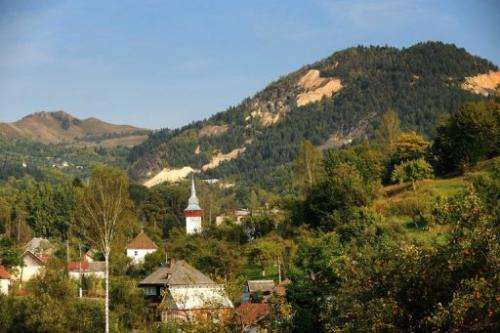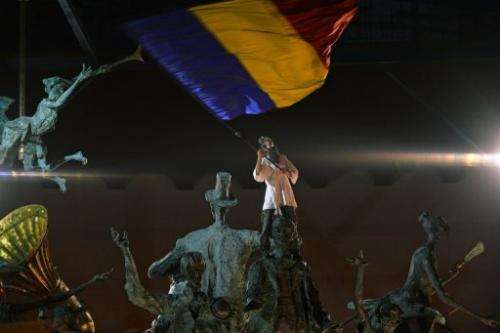EU water law could sink mine plan in Romania: minister

The fate of a Canadian gold mine project in the heart of Transylvania that has sparked public anger and massive protests hangs on a river protected by European law, Romanian Environment Minister Rovana Plumb said Tuesday.
Canadian company Gabriel Resources hopes to extract 300 tonnes of gold and 1,600 tonnes of silver over 16 years from Rosia Montana in north-western Romania but the plans hinge on diverting the path of the Corna River.
"The European directive on water, also included in Romanian legislation, stipulates that one cannot divert a water course unless it is for the sake of a project of exceptional public interest," Plumb told a parliamentary committee tasked with drawing up a report on the planned mine.
"So we cannot go ahead with the environmental assessment procedure unless parliament adopts a bill declaring the mine a project of exceptional public interest," she stressed.
The project cannot proceed without the environment ministry's permission.
Former environment minister Attila Korodi told AFP that the river could pose an insurmountable problem.
"If the mine project does not get public interest status, the river cannot be diverted, which means the mine cannot be built as it is planned today," said Korodi.
"The Corna River can indeed block the mine project for good," he added.

Romania's centre-left government last month submitted to parliament a controversial draft law declaring the mine a "project of exceptional national public interest."
This would clear the way for the mine to go ahead and allow Gabriel Resources to expropriate property and circumvent several laws.
However, it is far from certain the bill will be adopted in parliament with a key party in the ruling coalition saying it would vote against it.
Faced with massive opposition, lawmakers set up a special committee expected to submit a report by mid-November.
The project has sparked public fury, with thousands of Romanians taking to the streets every day in recent weeks.
Critics warn hundreds of families would be forced to move if the plan were to go ahead, and that four mountain tops and Roman-era mining galleries could be destroyed.
Gabriel Resources have promised a raft of benefits for Romania's economy, including 2,300 jobs in the two-year construction phase and up to 900 during the 16 years the mine operates.
But the Romanian Academy, the country's to scientific body, said the mine was "not a solution for long-term development and does not solve the region's social and economic problems".
© 2013 AFP



















